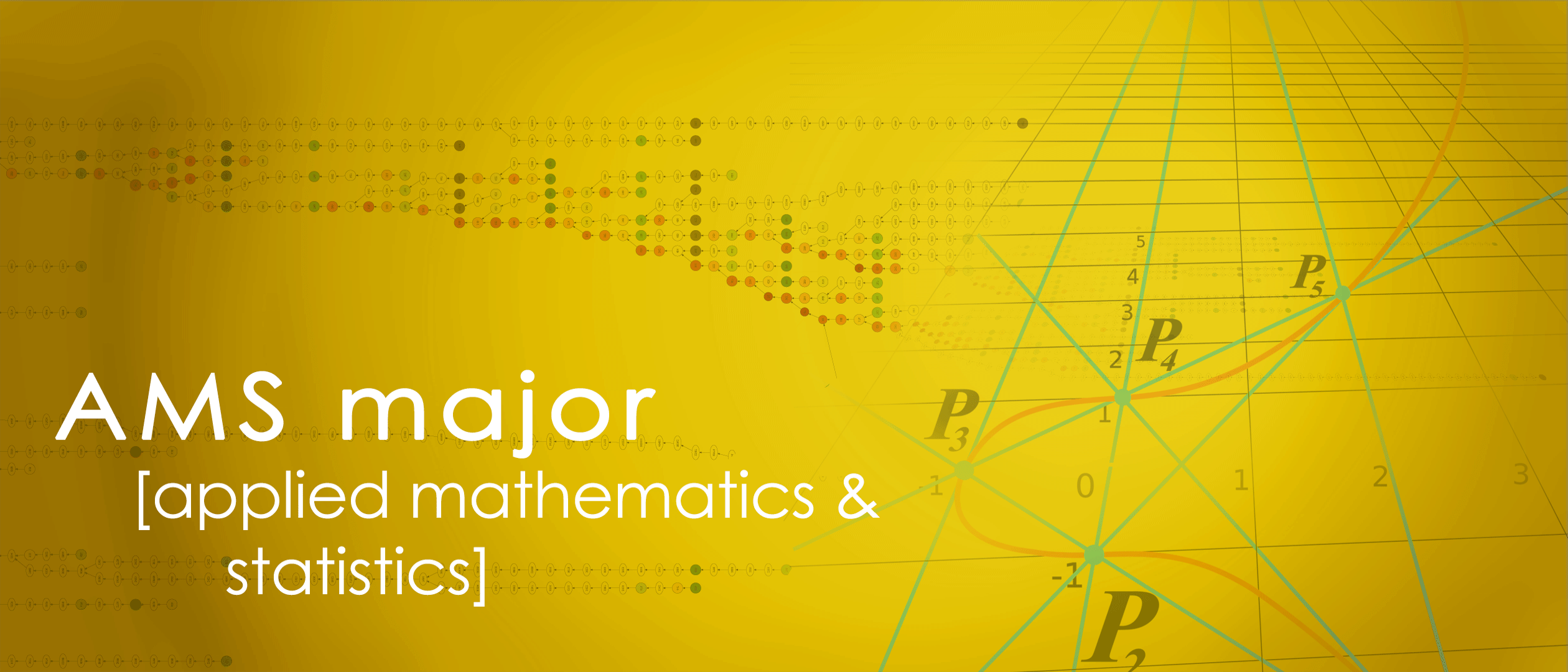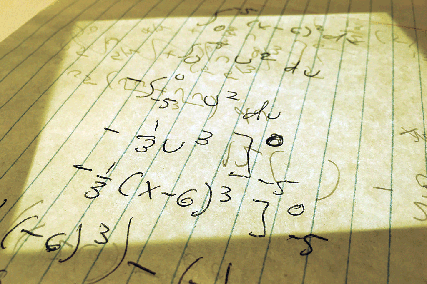Main content

Applied Mathematics and Statistics (AMS) Major
Overview
The Applied Math and Stats major (not to be confused with the Applied Math major) is jointly offered by QTM and the Department of Mathematics. It is the most technically rigorous curriculum offered by the QTM department. It will provide the necessary building blocks for statistical analysis as well as the tools and conceptual foundations for quantitative research and empirical quantitative work.
 This major will prepare you for:
This major will prepare you for:
- Data-oriented or quantitative fields
- Becoming a "Type B" Data Scientist (data engineer)
- Graduate school in statistics or applied math, actuarial science, or financial mathematics
- Interdisciplinary graduate training in business analytics, the social sciences (particularly economics), physical and natural sciences, or engineering
What distinguishes AMS from similar majors?
There are three key features of the AMS major:
- Introduction to Scientific Methods will change how you think and help you approach statistical questions with an eye for cause and effect
- The major focuses on practical applications but isn't limited to any one field, so if you want to keep your options open, your AMS coursework will be broadly applicable to a range of disciplines
- A common core of courses (like Intro to Statistical Computing and Regression Analysis) is shared across QTM majors, but specific courses in the AMS major emphasize mathematical foundations
Total credits towards AMS: 56+ required
- Current Checklist for AMS majors (Read on before downloading)
QTM Courses
- MATH 362 is a prerequisite for QTM 220
MATH Courses
- MATH 221 or MATH 321 - Linear Algebra or Abstract Vector Spaces
- CS 170 or Math 170 - Intro to Computer Science I or Intro to Scientific Computing
Elective Courses
- QTM electives include 300- and 400-level lecture and seminar style classes of 3+ credit hours
- QTM 398R, 495A, 496R, 497R, and 499R do not satisfy the QTM elective requirement
- MATH electives include your choice of the following:
- MATH 330: Intro to Combinatorics
- MATH 345: Math Modeling
- MATH 346: Intro to Optimization Theory
- MATH 351: Partial Differential Equations
- MATH 352: PDEs in Action
- MATH 411: Real Analysis I
- MATH 412: Real Analysis II
- CS 171 or CS / MATH course at 200+ level. The additional CS / MATH course cannot include courses already fulfilled in a previous category
| Creative Commons Attribution: "2016-01-21 cipher" by Robert Couse-Baker is licensed under CC BY 2.0 |